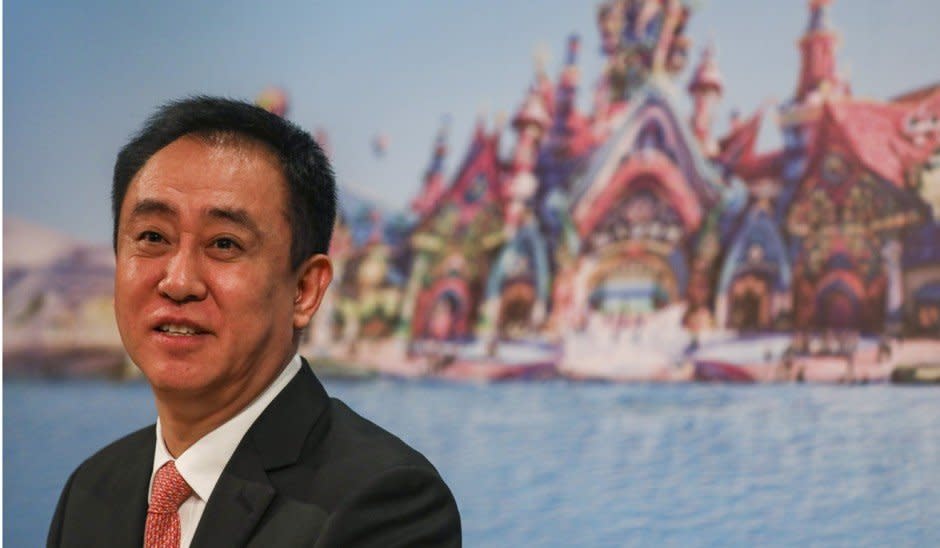Tesla's Chinese challenger Evergrande slams brakes on electric car investments amid slowing sales

China Evergrande plans to slow down its pace of investments in electric vehicles as sales of the environmentally friendly cars continue to fall in the mainland, but the company says it is on track to debut its "Hengchi 1" model next year.
The company, which sees itself as Tesla's main challenger in China, will invest a total of 45 billion yuan (US$6.4 billion) by 2021, chairman Hui Ka-yan said at a conference organised by Evergrande that brought together global car-related companies in Guangzhou on Tuesday.
The investments will be reduced from 20 billion yuan this year to 15 billion yuan next year and will be further cut to 10 billion yuan in 2021.
Hui, China's third wealthiest individual, said on Tuesday that the Hengchi 1, the first car developed by the company, will debut in the first half of next year and will go into mass production in 2021.

Hui Ka-yan, chairman of China Evergrande, is betting big on electric cars. Photo: Nora Tam alt=Hui Ka-yan, chairman of China Evergrande, is betting big on electric cars. Photo: Nora Tam
The company had already invested 16 billion yuan in EVs by June this year, officials said during the interim results briefing in August.
The country's third largest home builder has stated that its aim is to become the world's largest maker of new energy vehicles.
Gigafactory is just weeks away from starting its mass production of Made-in-Shanghai Tesla electric cars
"We aim to become the world's largest and strongest maker of new energy vehicles in three to five years," Peng Jianjun, Evergrande's vice-chairman said in August.
And as part of that plan, the company's subsidiary Evergrande Health has gone on a shopping binge this year, acquiring controlling stake in National Electric Vehicle Sweden (Nevs) for US$930 million, invested more than US$300 million in a new venture with supercar maker Koenigsegg, and paid US$154.4 million for a 58 per cent stake in lithium-ion battery maker Shanghai Cenat New Energy.
However, sales of EVs in China fell 46 per cent in October to 75,000 units compared to September.
It was the fourth consecutive month of slowing sales after the Chinese government cut subsidies by as much as 60 per cent on purchases of electric vehicles in late June.
In June, Evergrande Health started production of the Nevs 93 in Tianjin. The car was developed by Nevs before it was acquired by the Chinese firm in January.
Hui said on Tuesday that the company will build 10 plants in China, Sweden and other countries taking part in Beijing's Belt and Road Initiative. It currently has eight plants in use or under construction in Tianjin, Shanghai, Shenyang, Guangzhou as well as one in Sweden.
It aims to make 1 million cars a year within the next five to 10 years before ramping it up to 5 million units a year in the following five years.
This article originally appeared in the South China Morning Post (SCMP), the most authoritative voice reporting on China and Asia for more than a century. For more SCMP stories, please explore the SCMP app or visit the SCMP's Facebook and Twitter pages. Copyright © 2019 South China Morning Post Publishers Ltd. All rights reserved.
Copyright (c) 2019. South China Morning Post Publishers Ltd. All rights reserved.

